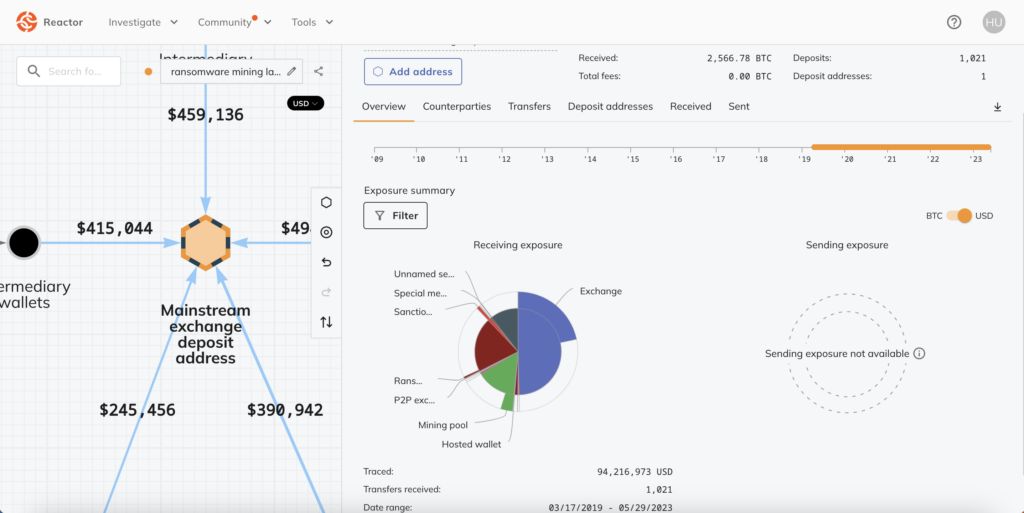On June 15, Chainalysis reported that cybercriminals are exploiting mining swimming pools to combine their prison proceeds with freshly mined cryptocurrencies.
The report pointed to a extremely lively deposit deal with at a mainstream crypto change. This pockets obtained a lot of cryptocurrencies from each mining swimming pools and wallets linked to ransomware.
The deal with obtained a staggering $94.2 million value of cryptocurrency, of which round 20%, or $19.1 million, got here from ransomware-linked wallets. The deal with additionally obtained $14.1 million from mining swimming pools.

Chainalysis discovered that each the ransomware pockets and the mining pool deal with despatched funds to the change deposit pockets through intermediaries. Nonetheless, in some circumstances, the ransomware pockets additionally despatched funds on to the mining pool.
This tactic is a “subtle try at cash laundering,” Chainalysis mentioned. The unhealthy actors funnel funds to the exchanges by mining swimming pools to create the phantasm that the contaminated funds are mining proceeds reasonably than linked to cybercrime. Due to this fact, the criminals are utilizing the mining swimming pools as a crypto mixer to keep away from triggering alarms on the change.
This can be a rising development — Chainalysis discovered 372 change wallets which have obtained funds from mining swimming pools and not less than $1 million from ransomware-linked wallets. In complete, these change addresses have obtained $158.3 million from ransomware wallets since 2018.
Scammers are additionally utilizing mining swimming pools to launder funds
Scammers are additionally using the identical tactic as ransomware attackers. As an example, funds linked to the BitClub Community rip-off, through which over $700 million was stolen, had been combined with Bitcoin obtained from a Russia-based mining operation in 2019, as per Chainalysis.
Furthermore, the wallets on the exchanges additionally obtained funds from BTC-e, a defunct Russian crypto change. BTC-e was shut down in 2017 for facilitating the laundering of funds, together with these linked to the Mt. Gox hack.
The criminals allegedly commingled funds from BitClub, BTC-e, and the Russian mining operation to obfuscate the origin of funds. The report said,
“We consider it’s attainable that the cash launderers on this case purposely mingled funds from BitClub and BTC-e with these gained from mining with a view to make it appear to be all the funds despatched to the 2 exchanges got here from mining.”
Since 2018, such change addresses have obtained practically $1.1 billion from scam-linked wallets. Moreover, such change wallets have obtained not less than $1 million from mining swimming pools throughout the interval.
To fight this rising situation of illicit funds, Chainalysis means that mining swimming pools and hashing companies ought to implement strict pockets screening and know-your-customer procedures. Mining swimming pools ought to confirm the supply of funds and reject all deposits from illicit addresses, it mentioned.
Chainalysis’ full report is on the market right here.

